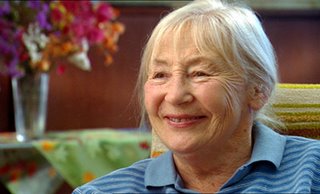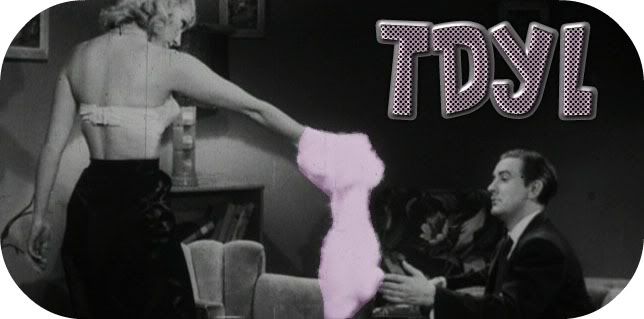
I seem to have gotten more mature in the past few months. The reason I say that, is that used to, when I would be wracked with insomnia, I would watch either a crappy movie, or a horror movie (no,they're not always interchangable). In the past month or so, though, I seem to be gravitating towards documentaries. I cannot fathom what has brought about this change in my viewing habits, although I think the one I watched last night-Capturing the Friedmans-was chosen as a defense against the 1,000 hours of children's programming that I've had to endure during the past week (If I EVER have to see another episode of Hannah Montana, things are gonna get ugly up in here).
Ah, yes-Capturing the Friedmans. Let me break it down for you.
In the mid-80s, Arnold Friedman, a husband and father of three from Great Neck, New York, was arrested for possessing child pornography. The police also discovered that Friedman also taught computer classes to young children, and decided that they should investigate further. When they did, they uncovered an extremely sordid and bizarre tale of abuse and molestation that also implicated Arnold's youngest son, Jesse. Both ended up pleading guilty to numerous charges, and both went to prison. Arnold ended up killing himself while in prison, and Jesse was released in 2001 after serving thirteen years on his sentence.
Sounds like a simple tale of straight-up perversion, yes? No, it's really not. Through interviews with family members, law enforcement, accusers and others, the viewer is forced to draw their own conclusion about what actually happened. Interspersed throughout the entire film, are numerous home video clips of the Friedmans, who seemingly documented every conversation that took place in their home, and which help to either clarify or muddy your opinion, depending on how you look at it.
One of the reasons a documentary succeeds or fails, in my opinion, is the amount of bias a filmaker has towards his/her subject. Personally, I'm a fan of the "fly-on-the-wall" school of filmaking, because when a documentarian goes out of their way to show one side of the story more than the other, even if I agree with that side, it feels like I'm being told what to think, and strangely enough, I don't care for that. Capturing the Friedmans worked because it was evenhanded almost to a fault, and after it was over, I felt compelled to read up on the case even further and it allowed me to be more accepting of new information than if the film had chosen to go in only one direction.
Of course, what I call "Evenhanded", some would call "A glaring lack of information", and the filmakers have addressed that on a short included in the DVD (I watched it on cable, so no short for me), that elucidates the events of the case even further (and from what I've read about it, it jibes with my opinion of what most likely happened). I'm loathe to say anything more about the film or the events, because if you decide to watch it-and you should-I don't want to give anyone any preconceived notions before they go into it. Just, go get it, open your mind, and absorb the information you're given. Then, let the pieces fall into place.
Sunday, November 26, 2006
America's Most Uncomfortable Home Videos
Posted by
jamie
at
1:38 PM
|
![]()
Labels: Capturing the Friedmans, Documentaries, Movies
Wednesday, October 11, 2006
Quality of Life
 So, I watched this documentary the other night, Mademoiselle and the Doctor. It follows two people: 79 year old Lisette Nigot, and Dr. Philip Nitschke. More specifically, Lisette wants to die, and she wants Dr. Nitschke's help.
So, I watched this documentary the other night, Mademoiselle and the Doctor. It follows two people: 79 year old Lisette Nigot, and Dr. Philip Nitschke. More specifically, Lisette wants to die, and she wants Dr. Nitschke's help.
Dr. Nitschke is sometimes known as the Australian "Dr. Death", and when assisted suicide was briefly legalized in Australia in the mid-90s, he was the first person in the world to legally administer euthanasia. Now that it's ILLEGAL again, he holds workshops, designed to give legal and medical advice on dying with dignity.
Lisette is healthy, she's not depressed and is not in any pain. She just feels that at 79, she's just lived as long as she wants to. She never married, nor had children. She talks about attending the Sorbonne during WW2, working in the PR department of the Waldorf Astoria during the 1950s, and nonchalantly drops names like the Duke and Duchess of Windsor, The Kennedys and Marilyn Monroe. She also implies that she had many lovers, but not any that she had any great love for. She was very intelligent, quick, and not sentimental in the least. I liked this woman A LOT.
Your enjoyment of this film depends on a couple of factors: Obviously, you have to be the type of person who can find entertainment in a documentary-I've known many people who outright refuse to watch them. Secondly, it helps if you're not extremely anti-assisted suicide. Personally, I've never given it much thought, but after watching this movie, I've developed somewhat of an opinion.
There's one man in the film, who is dying of bowel cancer. I believe he was around 66 years old. He LOOKED like he was about NINETY six. He could not eat anything, he was in constant pain, and was unable to move from his hospital bed. He was begging to die, and it seemed to me that they were torturing this man by making him live.
Towards the end of the film, Dr. Nitschke goes to California for a convention for proponents of euthanasia. Natually, there were quite a number of protesters, and he had to hire a bodyguard to protect him (not going to touch on the irony of having to have someone protect a person from being killed by people who are against ending life. Not gonna say a word.) One of the genius protesters postulates that, once they start legalizing voluntary euthanasia, naturally they will want to legalize INvolunatary euthanasia. Yeah, chief, that's precisely what they have in mind. Yeesh.
Semi-spoiler coming up:
Lisette succeeds in commiting suicide. As much as I hate to admit it, I actually cried a little bit. She left a note, and a message on her answering machine:"I'm sorry, Lisette has gone on a trip and will not be returning." Her death ignited even more controversy in Australia, adding questions to the euthanasia debate about who EXACTLY should have the right to die-only sick people, or everyone. I'm not going to say what I think about that, one way or the other, but I highly recommend this movie.
Posted by
jamie
at
6:13 PM
|
![]()
Labels: Documentaries, Mademoiselle and the Doctor



